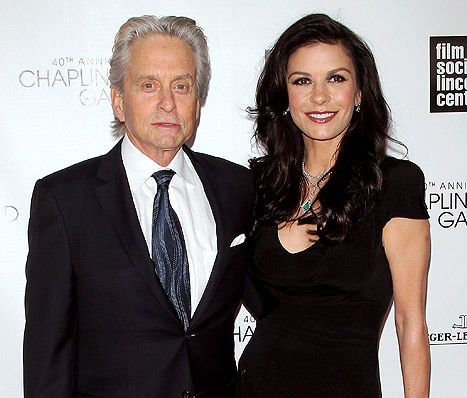Catherine Zeta-Jones: Bipolar Treatment Ends

Last month, actress Catherine Zeta-Jones announced that she would be entering a rehabilitation facility to treat her bipolar disorder. Today, the 43-year-old Zeta-Jones is about to be released.
Zeta-Jones went public with her condition several years ago, at the risk that it might damage her career. It was worth it, she said.
"This is a disorder that affects millions of people, and I am one of them," she told People magazine. "If my revelation of having bipolar II has encouraged one person to seek help, then it is worth it...There is no need to suffer silently and there is no shame in seeking help."
Jones had suffered in silence herself for a while, but while watching her husband battle throat cancer and preparing to shoot the romantic comedy Playing the Field, she decided to seek professional help.
Bipolar disorder is associated with mood swings, ranging from the highs of mania to the lows of depression. The disorder is sometimes called manic depressive-disorder.
Zeta-Jones' husband, Michael Douglass, spoke about her condition while promoting a film at Cannes.
"She comes home tomorrow," Douglas said. "She's doing a really good job of getting balanced. I'm proud of her."
Zeta-Jones also discussed her condition with InStyle Magazine last December. She said she hopes to help remove the stigma from the condition.
"It's not easy. I'm not the kind of person who likes to shout out my personal issues from the rooftops, but with my bipolar becoming public, I hope fellow sufferers will know it's completely controllable," she said. "I hope I can help remove any stigma attached to it, and that those who don't have it under control will seek help with all that is available to treat it."
The depressive phase of bipolar disorder is associated with feelings of hopelessness, as well as loss of interest and pleasure in most activities. The manic phase is marked by euphoria and an abundance of energy.
Mood shifts can occur only a few times a year, or as often as many times per day, according to the Mayo Clinic. Some cases of bipolar disorder can even involve symptoms of depression and mania at the same time.
Bipolar disorder is a long-term condition. The usual treatment plan for bipolar disorder as recommended by the Mayo Clinic is a combination of medication and psychological counseling.



























